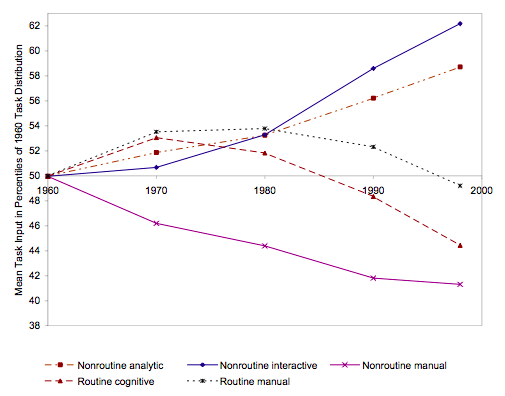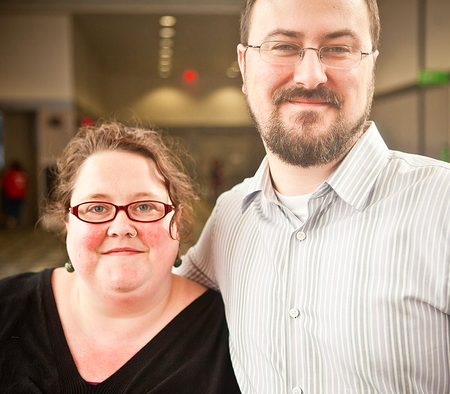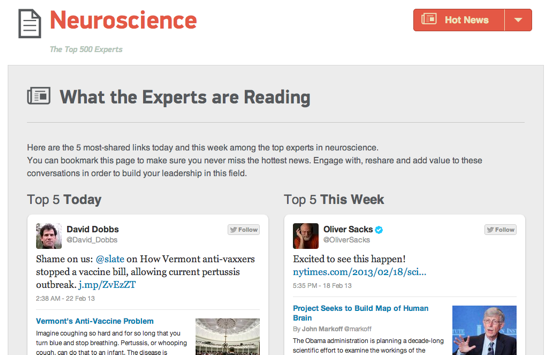What if there was a scientific methodology of learning to quickly position ourselves to engage with great efficiency in practices conducive to the kinds of creativity, meaning and impact that we want and that the global economy is focusing on for human labor?
The following are a bunch of different, interrelated thoughts and readings that I thought it could be fun and useful to pull together and share.
An economy shifting toward creativity
Last week at the first SXSW event in Vegas, leading enterprise software and social business analyst Ray Wang spoke on a panel about The Future of Work, chaired by the amazingly humble-seeming Maynard Webb. I Tweeted some of my favorite things Ray talked about, like:
“People call for STEM skills or other skills to be taught more in schools, but business models are changing too fast for that. In the future, your ability to learn will be the key skill…
“The workforce is different today; key new non-monetary incentives for workers are meaningful and include: Rewards, Access & Having an Impact. Workers will sacrifice financial bonuses for those kinds of incentives.”
Ray also spoke about the decline in jobs that will be eliminated by the rise of cognitive computing that can perform tasks like basic legal analysis and other routine analytical skills. I asked the panel what would happen to those people in society who didn’t want to rise up to new opportunities for more flexible, creative work and hustle, because work was a straightforward way to put food on the table and pay for other things they care about more – like taking care of their families. That was another conversation.
Regardless, after that session, I emailed Ray a chart I found some time ago when looking at a Little Bird report on international education. It is below.

I’ve been wanting to post that chart here on my own blog for awhile! It’s from an an OECD report about the change in demand for various types of skills over the past 40/50 years. (source PDF )
I find this chart very thought provoking. The only skills that have grown instead of declined are non-routine analytic and non-routine interactive. Routine cognitive has been on the decline for years and, as Ray argues, is only likely to further diminish with cognitive computing.
So I share that chart with Ray and he writes me back saying that the question, then, is how we teach Creativity.
One theory of how creativity happens
That brings to mind one of my favorite articles on the topic. From neuroscience writer Annie Murphy Paul. (The Five “Core Dispositions†Of The Artistic Mind). I regularly remind myself of what she says are the 5 key dispositions essential to creativity:
* Inquisitiveness
* Imaginativeness
* Collaborativeness
* Persistence
* Discipline
Awesome! So maybe what the world needs is to be taught to foster those skills and thus creativity.
Practice and over-practice according to Kathy Sierra and Annie Murphy Paul
How do you do that? Two more perspectives come to mind. First, from Kathy Sierra‘s incredible talk today at the Hubspot Inbound conference in Boston. (video of related talk) Sierra made a case for a practice strategy that calls for 45 to 90 minute deliberate practice sessions, with clear criteria and immediate feedback, a maximum of 3 times before an evaluation. If you can’t become 95% reliable in those 3 sessions then stop (!) she says, because clearly you’re not practicing the right things and are only going to make bad habits more entrenched and yourself worse at what you’re doing!
I posted a comment about that on a brand new Annie Murphy Paul article over on Time.com (“Don’t Just Practice, Over-Practice“) where Murphy Paul summarizes a recent study that found that people who practiced a task beyond the point where they had mastered it continued to increase their efficiency just because they continued to require less and less energy to perform a mastered task the more automatic it became!
“The brain uses up energy, too, and through overlearning it can get by on less. These gains in mental efficiency free up resources for other tasks: infusing the music you’re playing with greater emotion and passion, for example, or keeping closer track of your opponent’s moves on the other side of the tennis court. Less effort in one domain means more energy available to others…
“‘The message from this study is that in order to perform with less effort, keep on practicing, even after it seems the task has been learned,’ says Ahmed. ‘We have shown there is an advantage to continued practice beyond any visible changes in performance.’ In other words: You’re getting better and better, even when you can’t tell you’re improving—a thought to keep you going through those long hours of practice.”
Overly-ambitious summary
To tie all of these different perspectives together (and please tell me what you think about this) we might say:
The world has long been seeing a decline in demand for routine skills of any sort, including analytical skills. The emerging workforce is meeting an increasingly rapid rate of change by calling for meaning, creativity and impact. In order to enable people to succeed in this environment, we need to help them foster the underpinning dispositions essential to creativity (also helpful for meaning and impact): inquisitiveness, imaginativeness, collaborativeness, discipline and persistence. Those practices should be practiced deliberately, through a small number of structured short exercises with clear criteria to demonstrate reliability and immediate feedback. If those initial practice exercises succeed in getting us up to 95% reliability after no more than 3 sessions of 45 to 90 minutes in duration, then the next step would be to continue with the same sort of practice beyond the point of apparent continued improvement. That’s because the improvement will come in efficiency and ability to shift some of the energy formerly required to engage with inquisitiveness or discipline – into greater augmentations of those dispositions, be it emotional expression or insight or perhaps greater creativity. And maybe that’s how any of us capable of doing so can become far more creative, capable, powerful contributors to the work and world we find ourselves in.
This is the kind of stuff I love to read about and think about when I can, but I also know that there’s a difference between an internally consistent narrative and something you can really go to town with. If you’ve got something to say about any of the perspectives above, any holes you can poke in this narrative or any supporting evidence you can think of, please share them.
If you’d like to follow a Twitter List of the top 100 most peer-validated experts on learning, we made one with Little Bird here.



 It’s in that spirit that I offer below 7 quick bullet points summarizing the most relevant parts of the last year of my work life and what I’m doing at SXSW this year. My personal life is mostly another matter, but know that my health is pretty good and my wife Mikalina and I are very much in love. Above: two of the many facial expressions available from Mikalina and I at SXSW, in this case in 2012. Photo by classic SX’ photographer Kris Krug.
It’s in that spirit that I offer below 7 quick bullet points summarizing the most relevant parts of the last year of my work life and what I’m doing at SXSW this year. My personal life is mostly another matter, but know that my health is pretty good and my wife Mikalina and I are very much in love. Above: two of the many facial expressions available from Mikalina and I at SXSW, in this case in 2012. Photo by classic SX’ photographer Kris Krug.